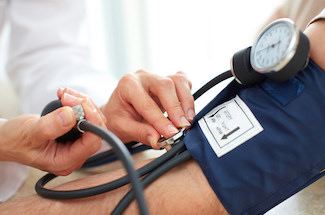
Feeling Low? What You Need to Know About Low Blood Pressure
Is your blood pressure low? While you might have heard of the health repercussions of high blood pressure, low blood pressure can be less understood. Lifestyle can contribute to low blood pressure, which has its own set of symptoms and complications, but it can be treated when diagnosed early.
Questions about low blood pressure:
 What Is a ‘Normal’ Blood Pressure?
What Is a ‘Normal’ Blood Pressure?
Systolic pressure and diastolic pressure are the two numbers in a blood pressure reading. The top number (systolic) indicates the pressure on the heart as it pumps blood, while the lower number (diastolic) indicates the pressure in your arteries between heartbeats. Together, these create a numerical guideline to determine if you have low, high or normal blood pressure, which is estimated to be around 120/80 mmHg. Low blood pressure typically is considered anything below 90/60 mmHg.
What Are the Symptoms of Low Blood Pressure?
It is important to recognize the symptoms since it is not uncommon for those with plummeting blood pressure to faint or pass out. Some signs of low blood pressure include dizziness, lightheadedness, vertigo, chest pain, blurry vision, nausea, and thirst. This basically means that your organs are getting an inadequate flow of blood, which could cause major problems such as a stroke, kidney failure or heart attack.
What Can Cause This?
Many things can cause low blood pressure; are you at risk? Those most at risk are individuals with an infection, who are pregnant or who have existing medical conditions like heart disease or a history of stroke. Some other factors could be if you are currently on bed rest, have any allergies, take medications, or have a diet lacking in folic acid or B-12, which can cause anemia. Make sure to provide a thorough and accurate medical history to any new providers or when having routine checkups; the information that you withhold could be pertinent to understanding why your blood pressure is low.
 How Do You Treat Low Blood Pressure?
How Do You Treat Low Blood Pressure?
Low blood pressure can generally be treated with healthy eating and lifestyle modifications and habits. It is important to stay hydrated when your blood pressure is low, with nonalcoholic fluids and water. Also, your provider may encourage you to increase your salt intake, while lowering your consumption of carbohydrates, such as bread or pasta. Some professionals endorse eating smaller meals throughout the day and consuming small quantities of caffeine, like coffee or tea, with meals to gently raise blood pressure.
When Should You Call a Cardiologist?
If you happen to experience an isolated lower-than-normal reading, don’t stress out. Unless you notice other signs of low blood pressure, such as fainting or nausea, it could be circumstantial, though you should mention it to your provider. However, it is prudent to follow up with a specialist in cardiology if you experience sudden drops in your blood pressure of more than 20 mmHg.
There is no reason to live with the discomfort and uncertainty of low blood pressure; have your blood pressure checked regularly and watch your diet to ensure you are not contributing to your symptoms. Talk with a cardiologist regarding any sudden or significant drops in blood pressure that can have life-threatening consequences such as organ failure if left untreated.


 What Is a ‘Normal’ Blood Pressure?
What Is a ‘Normal’ Blood Pressure? How Do You Treat Low Blood Pressure?
How Do You Treat Low Blood Pressure?
